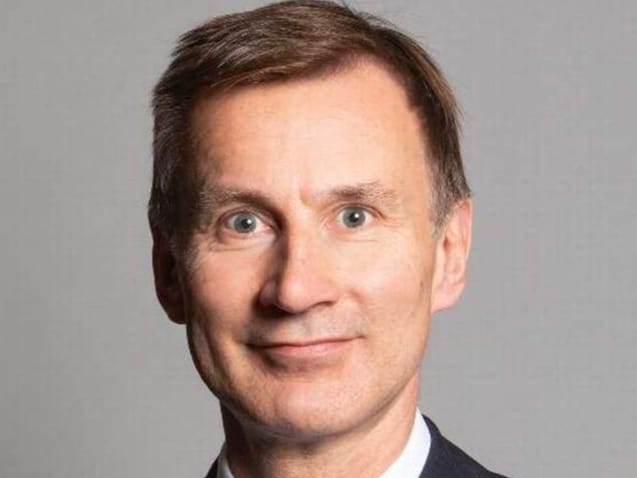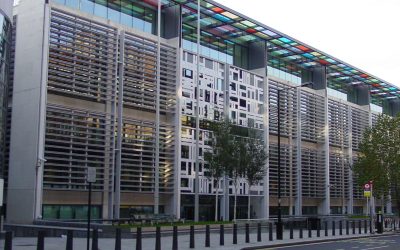Hunt warned: further cuts will weaken shire communities
District council leaders say they will have no option but to cut hugely valuable local services which will diminish towns and communities across England should further cuts be imposed upon them.
They have highlighted the value of five types of essential services which could be under threat if chancellor Jeremy Hunt signals further public spending restraint for councils at his 17 November autumn statement.
With their funding already worth much less in real terms because of the ravages of inflation, and the cost-of-living crisis leading to rocketing demand for services, councils could be reluctantly forced to scale back:
- Services which level up left-behind communities and prevent towns from falling into a spiral of decline
- Services which are a lifeline for those hit hardest by the cost-of-living crisis
- Services which help local economies to grow sustainably and bring in vital investment
- Early intervention support services which prevent people from reaching crisis and negate the need for more costly public sector expenditure in future
- Work to keep places clean, green and on course to hit net zero.
Even before further cuts, district councils – the tier of principal government closest to local communities in shire England – are already facing unenviable decisions about where to cut back. Inflation and pay pressures have led them to face a £900m funding gap in 2022-23 and 2023-24.
Four-fifths of councils expect to cut back their spending on culture and on parks; more than two-thirds predict cuts in leisure, 39% expect the same in waste collection and almost the same number expect cuts in welfare support. This will have a devastating effect on communities.
Cllr Sharon Taylor, District Councils’ Network vice chair, said: “Across the country, district councils are already saying that they face impossible choices about which of the services cherished by their communities they can afford to preserve, and these dilemmas will only get worse if we face further spending cuts.
“More cuts mean weaker districts as their councils are less able to shape their places to withstand future challenges and less able to support their people at a time of growing needs.
“Cuts will impact on ministers’ ability to fulfil their objectives – places won’t be levelled up, people won’t receive support through the cost-of-living crisis, local economies will receive less help to grow and the loss of preventative services will lead to higher cost pressures in the NHS and wider public sector.
“District council services have a massive role in shaping the destiny of places and people – they must not be lost.”
IN DETAIL: SOME OF THE SERVICES WHICH COULD BE HIT
Services which are levelling up left-behind communities and prevent towns from falling into a spiral of decline
District councils worked tirelessly during the pandemic to support our communities and businesses and we are now doing the same during the cost-of-living crisis. Our economic and community development teams use their unrivalled and highly localised insight to target support towards the people and businesses who need it most and to bring about the investments we know will have the greatest transformative impact on our communities. However, further cuts could mean much of this this expertise is lost. Councils’ ability to regenerate our communities and grow our economies would be diminished.
Services which are a lifeline for those hit hardest by the cost-of-living crisis
This work includes advice on overcoming debt and on financial resilience, or welfare support hubs helping those in most need navigate the bewildering benefits landscape. It is often delivered by district councils partnering with the voluntary organisations they know are most effective in their area. District teams can support people to find food and essential items and run social prescription programmes to alleviate problems such as loneliness which blight lives. They also make discretionary housing payments to people at risk of eviction and homelessness. However, all of this work could be reduced – just when it is needed most.
Early intervention support services which prevent people from reaching crisis and negate the need for more costly public sector expenditure in future
Many district councils have developed expert teams to offer upstream assistance to support those whose lives could tip over into homelessness or other crisis. Quite simply, we know our communities best and we hold the data – for instance on non-payment of rent or council tax – which shows us who is most at risk. We can work with these people to alleviate their problems. However, this innovative work and wraparound support is a discretionary service – councils are not legally obliged to do it. Further cuts could mean districts have no other option than to scale it back, with a devastating impact on people whose lives tip into crisis without help and on public finances which face the additional future burden of giving far more expensive help to people with far greater problems.
Services which help local economies to grow sustainably and bring in vital investment
As local planning authorities, district councils are the enablers of economic growth and sustainable development. Planning teams’ work to shape the future prosperity of places has already been impacted by cuts and is also in greater demand as a result of increasing development. The Government could help by allowing us to increase planning fees, as it promised in May. Districts’ economic development work – undertaken in close partnership with local business and which spearheads the local drive to bring in investment – is discretionary and councils may have no other option but to scale it back, with a devastating impact on the drive to bring about sustainable growth. This work has already been hit by the impact of inflation on construction costs.
Work to keep places clean, green and on course to hit net zero
District councils use our unique proximity to residents to work with them to bring about the behaviour changes needed to reach net zero, often innovating for instance by setting up citizens’ assemblies to achieve local buy-in to proposals. Many have instigated and funded local energy networks or co-funded low-carbon investment projects. The funding needed to roll out these projects is already hard to obtain; further cuts will be detrimental to achieving climate goals. District councils also own and maintain much of the country’s public green space, which will be integral to climate adaptation, but we already know four fifths of councils face cutting spend on green space management. Funding pressures and reforms to waste services could mean waste collection becomes less frequent and straightforward.





